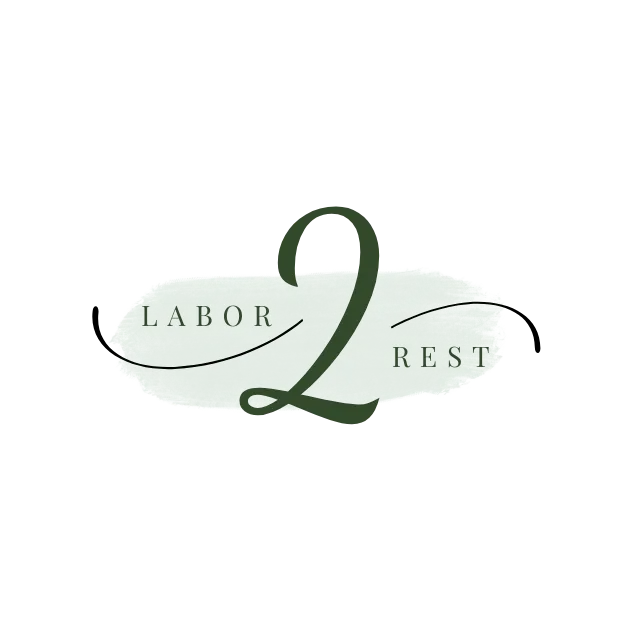Read Our Latest Blogs

Forget Budgeting: Here’s What Every Christian Entrepreneur Should Do Instead
Let's be real—
Budgeting doesn't make you holy.
It just makes you feel small.
You've downloaded the apps.
You've built the spreadsheets.
You've sworn this time would be different.
But no matter how organized you get, something still feels off. Like you're constantly trimming your life down to fit your bank balance instead of expanding your money to fit your assignment.
Here's the problem:
Traditional budgeting teaches you to manage limits.
But Kingdom stewardship teaches you to multiply resources.
This blog will show you how to ditch the scarcity mindset that budgeting often creates and replace it with a practical, faith-rooted system for managing cash flow that aligns with your purpose, not just your bills.
Why Budgeting Isn't the Answer (and What Is)
Traditional budgeting...that thing where you slice and dice every category until there's no room left to breathe...
It keeps your eyes locked on lack.
It teaches you to fear spending instead of stewarding from faith.
And according to an article in Money.com, the kind of budgeting that only focuses on cutting costs can actually deepen scarcity thinking. That's not what we're doing here.
And most of all, it keeps you reactive, not proactive.
Instead of asking: "What do I have to cut?"
You start asking: "What am I called to build?"
That's why I started using a cash flow system rooted in values and purpose, not just planning.
But What If Budgeting Works for You?
Let's take a pause here because you may be loyal to your budget.
And honestly?
That's not a bad thing.
You may love your traditional budget.
You create a budget for each paycheck. You stick to it. It gives you structure and peace. And that's beautiful.
If that's you? I'm not here to rip it away.
But here's what I've noticed in my work with Christian entrepreneurs, especially those building vision-driven businesses:
Budgeting can be a great starting point. But it's not always a great destination.
It works when your income is predictable and your goals are mostly short-term.
But when you're building something that requires faith, flexibility, and forward motion? You need a different kind of system.
So if you love your budget and it's bearing good fruit—keep it.
Just make sure it's serving your calling, not shrinking it.
You can absolutely adapt the principles of budgeting into a cash flow system that aligns with your assignment.
Now let me show you how.
The 4 Types of Personal Expenses (And Why You Need to Know the Difference)
If everything feels "urgent," you'll keep spending from stress or guilt—not purpose.
This framework helps you sort that out. If you're familiar with Garrett Gunderson's Budgeting Sucks, you'll recognize the four expense categories I adapted below. They've helped me rethink how I spend personally and in business.
"In the house of the wise are stores of choice food and oil, but a foolish man devours all he has." — Proverbs 21:20
So how can we apply the principle behind Proverbs 21:20 practically?
Here's how to break it down:
🧨 Destructive
This is anything that drains you. Think overdraft fees, high-interest debt, addictions, or emotionally driven spending. Cut these out fast.
✨ Lifestyle
These are things that make life better, but don't necessarily multiply anything, like housing, vacations, dining out, or retail therapy. These aren't bad, but they need a cap, so you need to manage them.
🛡️ Protective
These are the things that are better to have and not need than need and not have. Things like business insurance, a cash reserve for slow months, legal counsel when contracts get tricky, and professional liability coverage. Don't skip these.
� Productive
These are the investments that actually work for you over time - getting business coaching to level up your skills, putting money into real estate, giving in ways that create lasting impact in your community, and investing in your financial education. These expenses pay you back by opening doors and creating opportunities.
When you can see what's draining you vs. what's fueling your future, your money stops being a mystery and starts becoming a tool for impact.
Now let's apply the same lens to your business.
The 4 Types of Business Expenses
Back in Bible days, flocks and herds were your business.
So this verse hits different when you're running a business today:
"Be diligent to know the state of your flocks, and attend to your herds." — Proverbs 27:23
Here's how I evaluate my business spending now:
🧨 Destructive
Random subscriptions, late fees, vanity purchases, or marketing experiments you never reviewed. Be ruthless about cutting these.
🧩 Operational
The daily "run-the-business" costs—software, payroll, tools, taxes, admin. You need these, but monitor ROI.
🛡️ Protective
Legal, insurance, reserves. Not glamorous, but absolutely necessary. Address them.
🚀 Productive
This is where the growth happens: automation, scalable hiring, marketing, mentorship, and audience building. These expenses can be increased. But you have to get an ROI on these; otherwise, they become destructive (shiny object syndrome)
Now, all of this may sound overwhelming to wrap your head around.
Don't worry. I've got you covered.
How to Use This Cash Flow System (Without Getting Overwhelmed)
Okay, let's make this practical.
Here's how to start shifting from a scarcity system to a Spirit-led, strategy-backed cash flow system:
Step-by-step:
Pull your last 60–90 days of personal + business spending.
Sort each expense into one of the 4 buckets.
Set a monthly meeting—just you and the Holy Spirit. Ask: "Lord, what needs to shift?"
Eliminate destructive, cap lifestyle/operational, protect protective, and expand productive ones.
"Let all things be done decently and in order." — 1 Corinthians 14: 0
This isn't about overhauling everything overnight.
It's about building from awareness. And doing it in partnership with the One who knows your assignment better than you do.
If Budgeting Feels Like a Box, It's Time for Something New
You don't need another spreadsheet.
You need a system that aligns with your vision.
This isn't about perfection.
It's about peace. And clarity.
And finally, stewarding your money in a way that matches your mission.
Let's stop calling fear "wisdom."
Let's stop shrinking down to fit an old spreadsheet.
And let's start expanding into the future God actually called us to.
Ready for the Next Step?
If this resonates with you, I'd like to personally invite you to the Wealth with God Masterclass—a free online training that guides you step-by-step through building lasting cash flow using biblical principles and real-life strategies.





